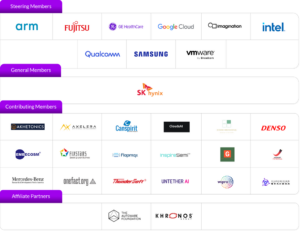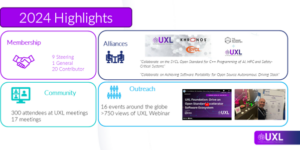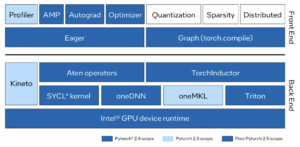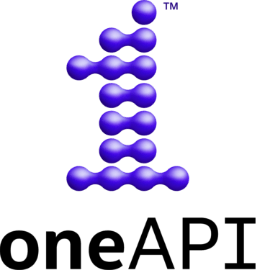GE HealthCare and SK Hynix join UXL Foundation on one year anniversary
I am excited to celebrate the first anniversary of the UXL Foundation by announcing two new members. GE HealthCare joined as a Steering Member, bringing their existing experience working with oneAPI and deep expertise in software development to UXL. SK Hynix joined as a General Member and expects to increase its hardware and software ecosystem by joining UXL helping to define standards for new memory technology.
A year ago, the formation of the UXL Foundation brought together industry leaders who all share a common goal: to address the challenges brought by accelerating the latest software on the latest processors. Our members unite behind open standards and open source to build a multi-architecture and multi-vendor software ecosystem for all processors, including CPUs, GPUs and AI processors.
During this first year we have established a growing member base and set up the mechanisms required for the community to effectively collaborate on the foundation projects.

Participation is expanding across the whole community through the Special Interest Group (SIG) meetings and Working Groups; bringing feedback, knowledge sharing and coordination to evolve the foundation projects so they meet the needs of everyone.
The foundation activities reach far beyond the groups and projects with lots of event participation and new alliances. This year the foundation is hosting two virtual oneAPI DevSummit events, with speakers from across the world enabling us to synchronize with APAC, Europe and Americas time zones.

During our first year we have achieved some key milestones. Membership is growing well with a (current) total of 30 members from right across the industry. Our members bring feedback and contributions, with expertise from processor vendors, software development organisations and cloud service providers.
Our members are basing their product development on open standards, including those defined by the UXL Foundation, and have talked about this in articles and presentations such as those from Fujitsu, Imagination Technologies, Intel, Samsung and SK Hynix.
We have signed two major alliances. One with the Khronos Group to cement our fundamental relationship through the SYCL standard and to enable collaboration on safety standards. The other is with the Autoware Foundation and enables our members to collaborate on developing a demonstration application using the UXL Foundation projects with the Open AD Kit. We are working on new alliances for the coming year.
Community Efforts
The mechanisms of the foundation are in motion with increasing activities coming out of the Working Group and lots of good feedback and discussions in the Special Interest Groups (SIGs). So far more than 5 work packages have been kicked off across a range of activities. This is crucial for getting collaboration within the projects and specification happening. A new Safety Critical SIG was established to enable discussions on how the UXL specification and libraries might be used in a safety conscious environment. This is a key area for exploration to meet the needs of members who are interested in the automotive industry.
We have seen some significant contributions to the UXL projects too with Fujitsu adding code to the oneDNN and oneDAL projects to support Fugaku and Monaka Arm based designs. The oneMKL project is evolving to bring more target processors with an ongoing RFC, and more open source kernels for BLAS and FFT math domains contributed by Codeplay.
The UXL Foundation projects are being used in an increasing number of important projects, notably the recent upstream contributions featuring oneDNN, oneMKL and SYCL by Intel to the PyTorch project. This contribution to PyTorch paves the way for a single, open standards based path for all processor targets and will be a focus area for the foundation.

The infrastructure required for the foundation projects to build and test across a broad range of hardware architectures is another important area of focus. There is a coordinated ongoing effort to set up the required public build infrastructure for the projects. We are urging our members and the community at large to contribute to this by integrating their own hardware so that the projects can be tested across a broad base of vendors and architectures.
Events and Outreach

|

|
We had a very busy year at events and conferences with many presentations made by our members including a keynote presentation at ISC, a UXL hosted webinar, a UXL hosted hackathon and members representing the foundation at other major conferences.
There are two important conferences hosted by the Linux Foundation that are upcoming – the Open Source Summit in Vienna where we will celebrate our first anniversary, and the PyTorch conference where members including Arm and Intel will be talking about how they are helping to bring open standards to this project through the UXL Foundation.
We are also hosting two virtual upcoming oneAPI DevSummits on October 9 & 10, 2024, for the first time and it will be exciting to see our community presenting their work and talking about future projects. You can register and attend these events online.
If you’d like to find out more detailed information from the first year of the UXL Foundation we will be releasing the UXL Foundation 2024 Annual Report, sign up to our mailing list to be the first to receive this.
If you’d like to join the foundation, and contribute to our mission, membership starts at free and you can sign up at the website.
Visit our GitHub repo for details on how to find things like meeting notes, processes and each individual project repo for RFCs and other Pull Requests. If you want to be notified of new RFCs and join the discussion you can sign up for our Slack workspace and mailing lists.

